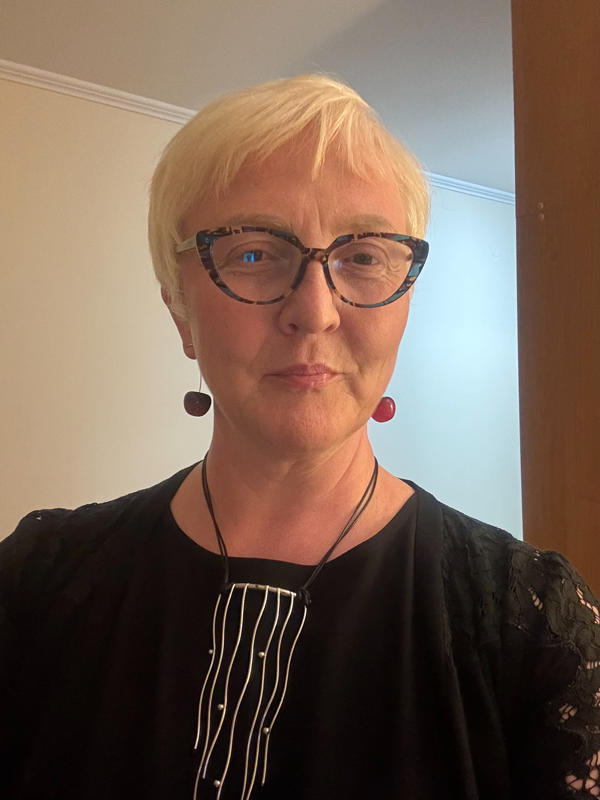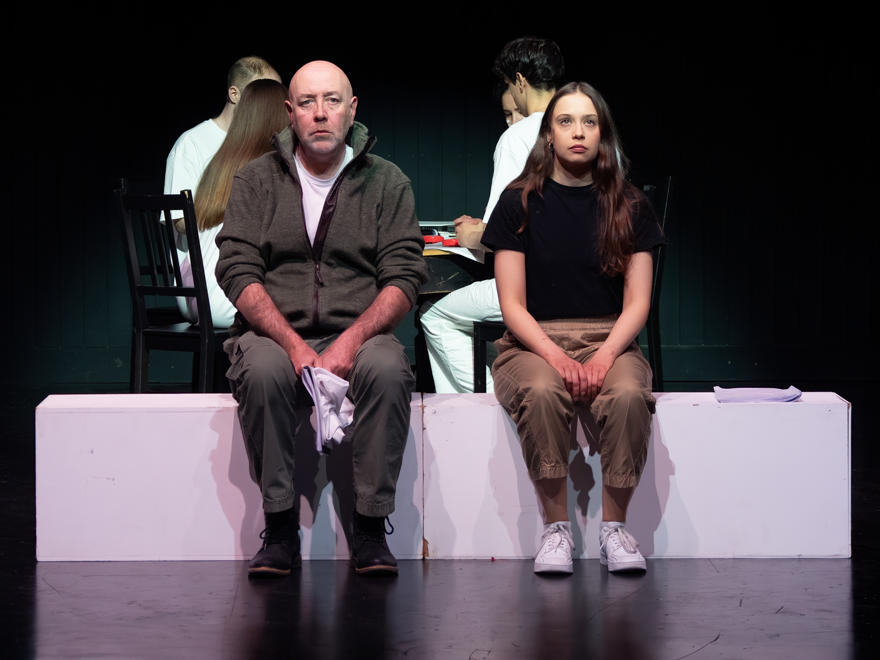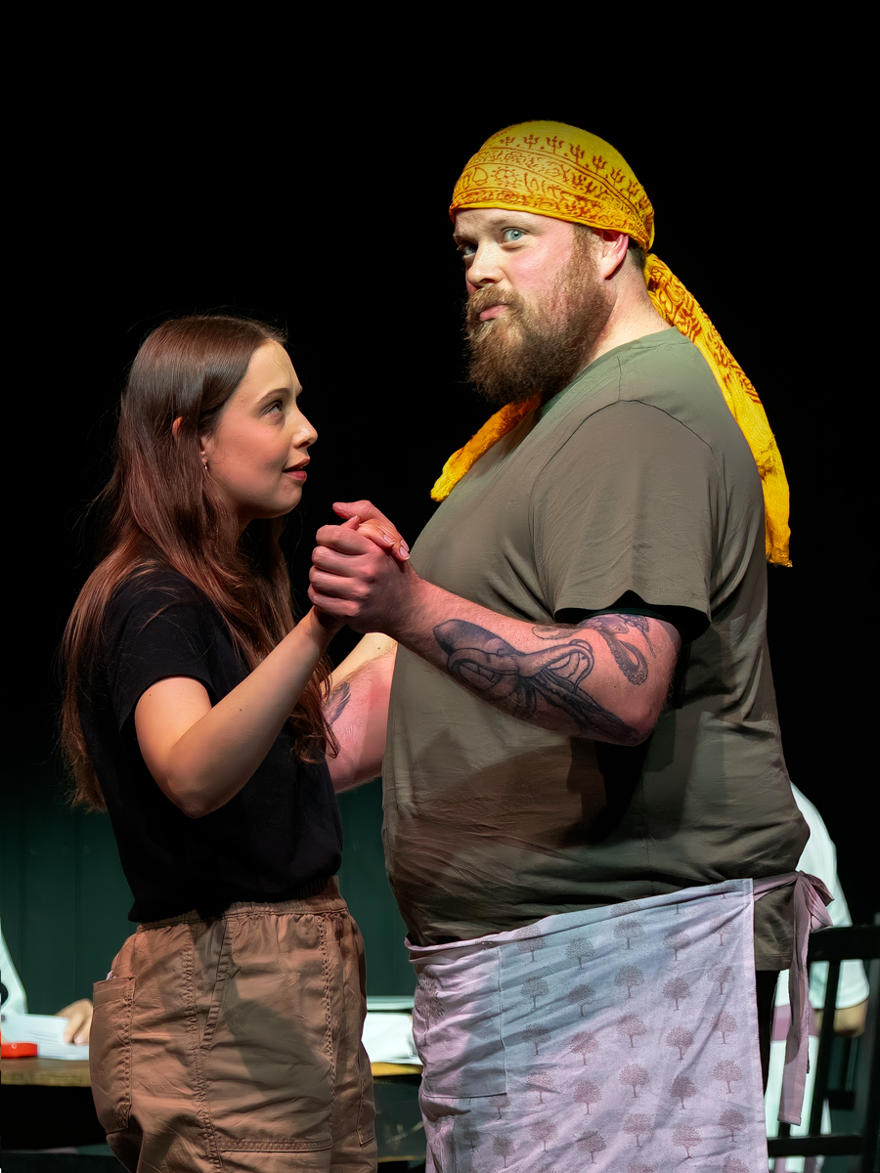A University of Worcester academic has helped bring to the stage the world premiere of a Ukrainian play based on Shakespeare’s Othello, that explores aspects of the ongoing Russia-Ukraine war.
 Professor of Shakespeare Studies, Nicoleta Cinpoeş.
Photos below: photos taken during the performance, which must be credited to John Saunders, York International Shakespeare Festival
Professor of Shakespeare Studies, Nicoleta Cinpoeş.
Photos below: photos taken during the performance, which must be credited to John Saunders, York International Shakespeare Festival
Professor of Shakespeare Studies, Nicoleta Cinpoeş, in her role as international advisor for the York International Shakespeare Festival, discovered a fragment of the play and tracked down the writer. That fragment, which was originally written for a competition, was subsequently developed into a full play, which recently had its world premiere at the Festival.
“It’s a very powerful piece,” said Professor Cinpoeş. “It’s a wonderful, humbling opportunity to help the Ukrainian people be heard. It’s my conviction and moral responsibility because I have the privilege to work in peaceful circumstances — unlike Ukrainian people. I think it’s my duty of care as an academic, as a citizen who believes in territorial integrity, national sovereignty and freedom of speech to respond when these are under attack anywhere in the world.”
Codename Othello, by Olga Annenko, a Ukrainian playwright who has lived in France as a refugee since 2022, is inspired by Shakespeare's Othello and is set in Ukraine during the current conflict, both on the frontline and the home front. The character of Othello is a soldier in the Ukrainian army and Desdemona, his wife, is back at home. The play raises questions posed in the style of a media interview with the characters, but then the action explores the reality behind that. The play features ghosts, which in the York stage production were portrayed by Ukrainian refugees and the soundtrack includes real sounds of bombings recorded by the play’s translator. It focuses particularly on the struggles for those living through wartime, for both the soldiers and their partners back home, such as the impact of PTSD (Post Traumatic Stress Disorder).

Professor Cinpoeş, who has previously brought forward stagings of a Hamlet-influenced Romanian play (2023) and a Turkish Macbeth (2024) at the Festival, said when she came across the first scene of the play, which was written in 2020, consisting of just six pages, she tried to track down the writer and the rest of the play using her academic contacts in Ukraine.
Having discovered that was the extent of the play that existed, Professor Cinpoeş and Philip Parr, the York Festival’s director, raised the possibility of staging this fragment at the Festival, but Ms Annenko offered to complete the work. The play was finished and translated with only two weeks to spare before it was to be put on stage.

In preparing the translated play into English for performance, Professor Cinpoeş, who advised, said there were issues to consider in terms of how far to preserve Shakespeare’s writing style, how to signal the direct quotations from Shakespeare and how to make the Ukrainian dialogue with Shakespeare work in the translation back into English. It also proved difficult because, in some cases, the same word in Ukrainian can have multiple meanings in English (for example, cheating, betrayal, traitor).
Professor Cinpoeş hopes that the play could soon be published in both Ukrainian and English. She has herself previously visited Ukraine twice since the war started as part of efforts to preserve its theatrical heritage, co-launching the Ukrainian Ivano Frankivsk International Shakespeare Festival in June 2024, and has watched Romeo and Juliet performed in a bomb shelter. This summer, she returned to Ukraine to run a Summer School for students.
To find out more about the York International Shakespeare Festival visit the Festival website.
Performance photos - Credit: John Saunders, York International Shakespeare Festival